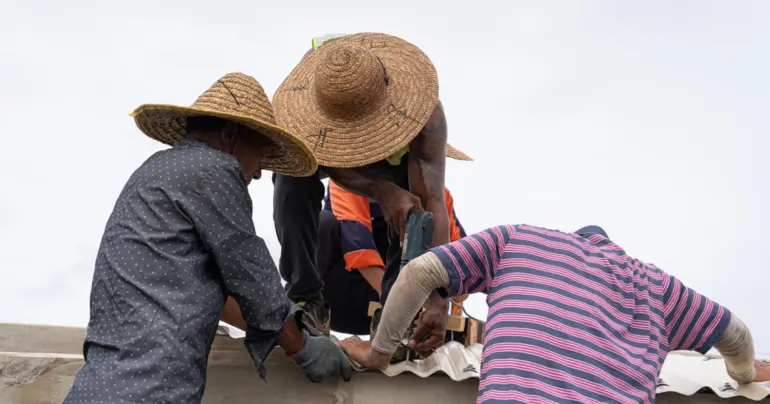Lockdown reveals need for vaccination penalties
 By The Editorial Board
•
26 September 2021, 6:00AM
By The Editorial Board
•
26 September 2021, 6:00AM
Everyone who worked behind the scenes to implement the Government’s COVID-19 mass vaccination campaign during the nationwide lockdown on Thursday and Friday deserves a commendation.
The coronavirus is no laughing matter, having already recorded 230 million cases and 4.7 million deaths globally, according to the U.S. John Hopkins University.
In scenes reminiscent of the measles vaccination program in 2019, when public servants joined forces with the Ministry of Health (M.O.H.) staff to roll out the vaccine against a virus that claimed over 80 lives, it was again a whole-of-government effort supported by a group of non-government organisations (N.G.O.) partners who worked during the lockdown on Thursday and Friday to administer the COVID-19 AstraZeneca vaccine.
But if you think you can use Samoa and the region’s isolation as an excuse to brush off the threat posed by this virus then think again.
Just next door, our neighbours Fiji have in recent months experienced spikes in COVID-19 infections with the World Health Organisation (W.H.O.) reporting 583 deaths and 50,447 cases.
And this comes against the backdrop of Fiji having fully vaccinated over 37 per cent or 338,251 of its eligible population and recording 63.5 per cent or 568,998 of the population getting the first dose according to the W.H.O.
So why is the coronavirus including the deadly delta variant continuing to spread in Fiji when a sizable portion of its eligible population have been vaccinated?
According to medical experts, COVID-19 vaccines are not 100 per cent effective against the virus, but they can prevent severe forms of the infection some six months after vaccination, including against the delta variant currently wreaking havoc in Fiji.
Early this month an infectious disease expert, Richard Reithinger told America’s CNBC television network that countries with high vaccination coverage are reporting a drop in hospitalisation and deaths.
“Irrefutable proof for that is how cases, severe disease requiring hospitalization and deaths dramatically dropped in countries that rapidly scaled-up vaccination coverage,” he said.
“In countries with very high vaccine coverage, such as Iceland with more than 90 per cent, hardly any severe cases and deaths are being reported.
“Similarly, in countries with moderate to high vaccine coverage, like the U.S. and Canada, severe cases and deaths are almost exclusively seen in the unvaccinated.”
That was ultimately the end goal of the two-day lockdown: increase Samoa’s vaccination coverage of its eligible population to 99 per cent and in the process achieve herd immunity for the country.
The Oceania University of Medicine Dean, Toleafoa Dr. Viali Lameko, expressed concern in June this year about the low vaccination coverage amongst those who took the first dose of the COVID-19 Astrazeneca vaccine.
He said at that time that Samoans only had to look at what was happening in Fiji to acknowledge how important vaccination coverage is to the country and its public health systems.
Preliminary data released by the authorities late Friday after the two-day vaccination campaign showed that 19,567 vaccinations were administered throughout Samoa with officials expecting the total to be in excess of 20,000.
On Saturday the M.O.H. released its updated vaccination overview that showed that 94.1 per cent or 114,698 of the eligible population had received the first dose of the COVID-19 vaccine and 47.3 per cent or 57,618 had been fully vaccinated.
When the Government announced details of the two-day lockdown early last week, the figure of 30,000 people who needed to be targeted in the campaign was floated around by health officials as the objective.
It is disappointing to see that the data coming back from this two-day life-saving exercise could fall short by close to 10,000 which isn’t good enough if we are serious about building a strong foundation against COVID-19.
And then hearing of cases involving some members of a local church refusing to be vaccinated, such as the Jehovah’s Witnesses, raises questions about the COVID-19 messaging that the authorities have been promulgating on various platforms in recent months.
Should the Government now consider penalties against citizens whose refusal to be inoculated could place other lives in danger upon the arrival of COVID-19 on our shores?
Having lived through an 18-month state of emergency (S.O.E.) and a global pandemic that shut down businesses and led to the loss of thousands of jobs while strangling income generation opportunities, surely we are smart enough now to start thinking about our aiga (family) and the community at large.
And at this juncture and having come this far we can acknowledge that our decision to avoid COVID-19 vaccination could endanger lives within and outside our households?
Probably best to remember that anyone can get infected with COVID-19 as it doesn’t discriminate and the best defense against the virus is working together.
Tags
 By The Editorial Board
•
26 September 2021, 6:00AM
By The Editorial Board
•
26 September 2021, 6:00AM











